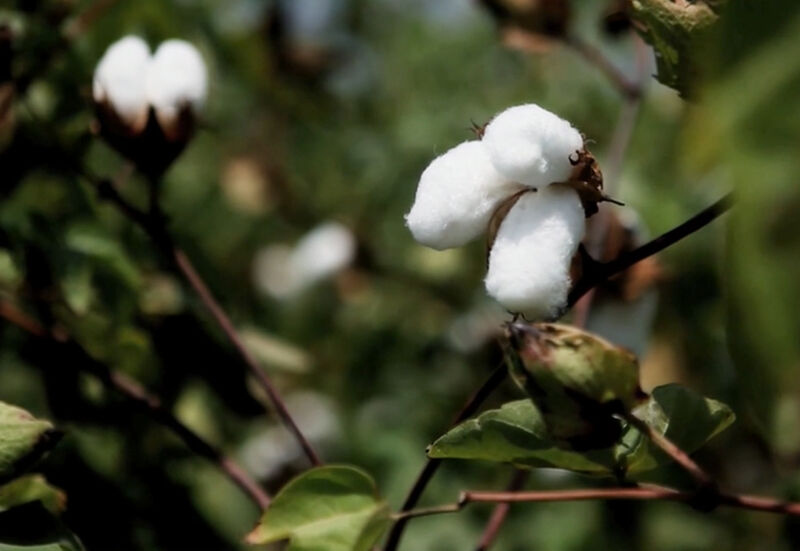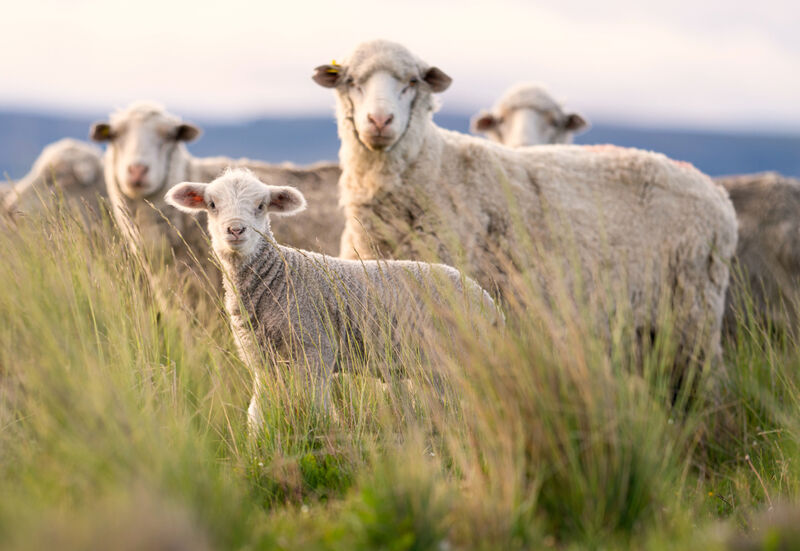Love, Peru. Our Fair Trade Project.
Our Love, Peru project supports over 450 families in and around Arequipa with higher fair trade wages and investments in the local community.
Here’s what it’s like to visit the workshops where our organic cotton and alpaca sweaters are knit: “You're greeted at the door with a tray of Inca Kola, the neon-yellow local soda,” says Julie Rubiner, our Design Director. “Then comes the tour.”
Industrial knitting machines might fill a converted garage or an added-on room in a house. “Brothers, cousins, aunts and neighbors work together taking shifts and watching each other's children,” says Julie. “Work is integrated with a focus on family and quality of life.”
This alternative supply chain, which EILEEN FISHER has been part of since 2006, is a fair trade model conceived by Jessica Rodriguez of Art Atlas, in Arequipa, Peru. Workers set up community-based workshops and staff them with neighbors and family members.
One workshop may specialize in knitting panels, while another links the parts together. Art Atlas distributes the yarn and supervises the work throughout the process. The pieces are sent back to a central factory for the finishing touches—buttons, labels and other handwork—as well as quality checks and packing.
WHAT IS FAIR TRADE?
Fair trade is an economic system that ensures fair wages and safe, healthy participatory workplaces. It is rooted in a respect for cultural identity and a commitment to both environmental sustainability and community empowerment.
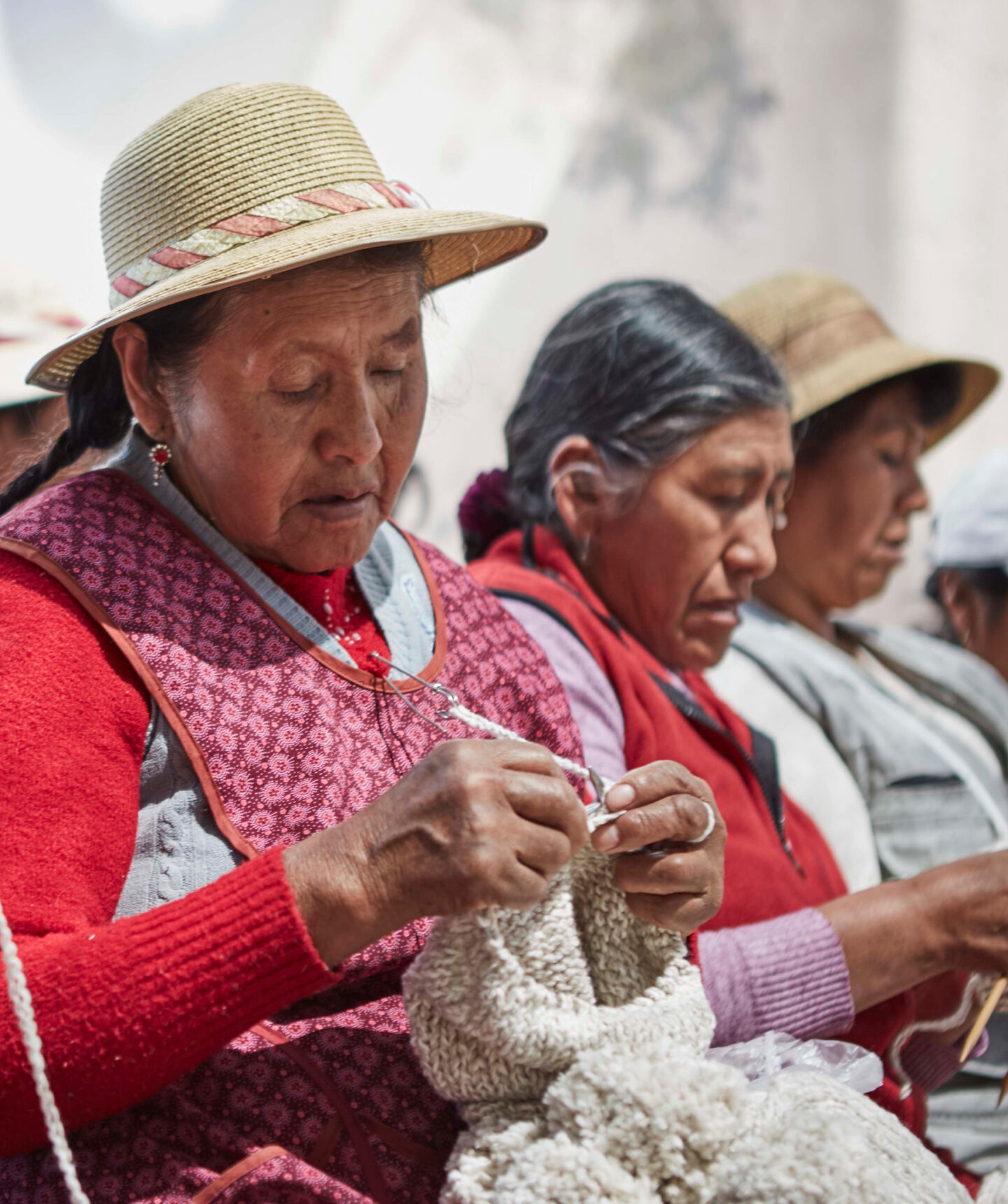
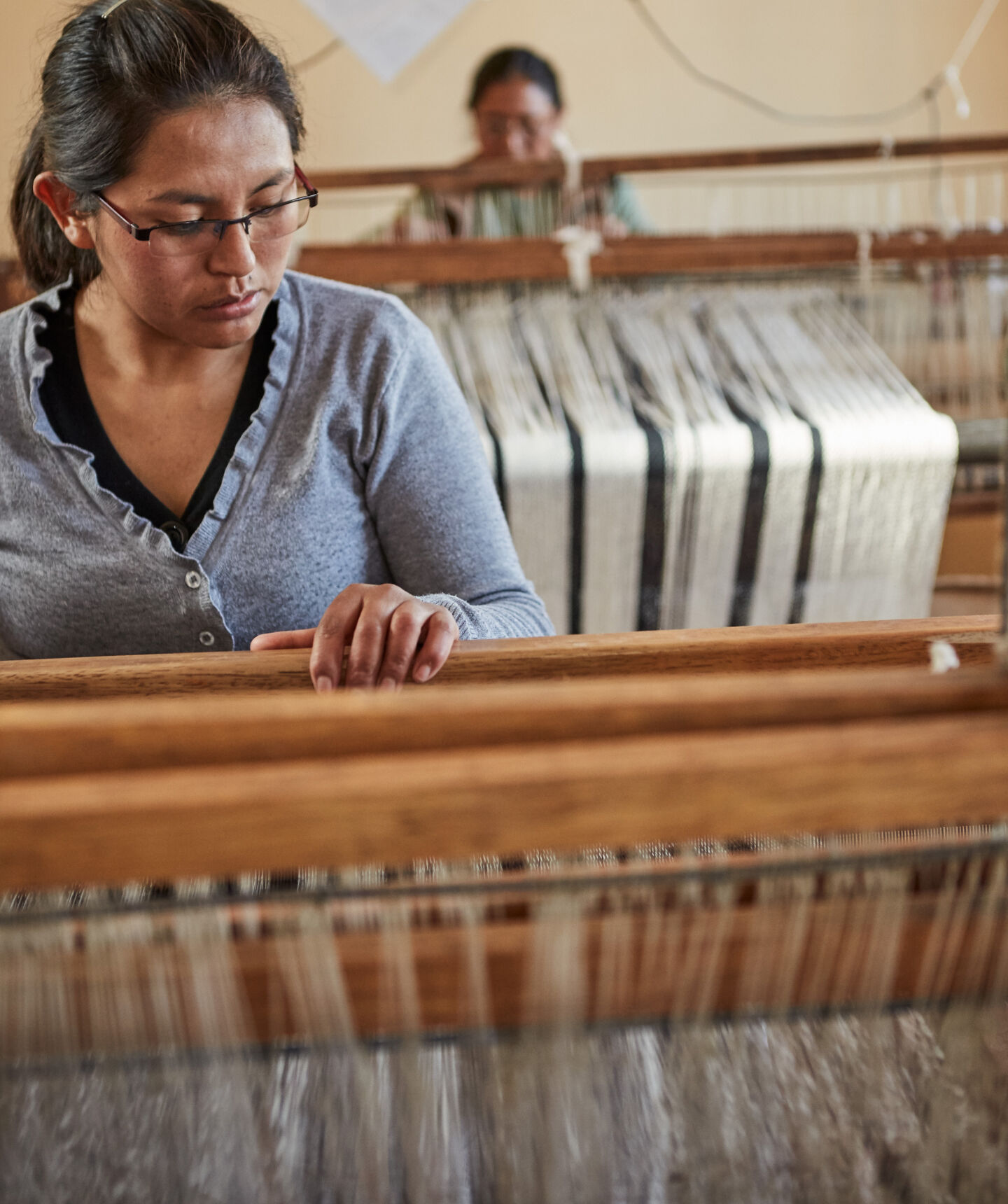
HOW DOES THIS PROJECT SUPPORT WORKERS?
Knitters are trained to use hand-operated and industrial knitting machines.
Workers in the outlying workshops are given one free knitting machine, and additional looms are available for purchase with zero-interest loans. Community workshops allow families to help each other with childcare.
WHAT IT TAKES TO SUPPORT A COMMUNITY
"First we give the knitters training," Jessica explains. "Then, we give them a knitting machine. And then, we give them constant work. If we cannot give them work, we are no help."
A typical workshop employs four to sixteen people, though the number might be as high as thirty-five during peak production times. If there are lean times, Art Atlas juggles projects, trying to make sure that the entire supply chain has steady work.
Our team recognized that a long-term commitment and steady orders were the key to supporting the community. “We knew that if we wanted a true partnership, we had to roll up our sleeves and invest in the relationship,” says Julie. The team started going to Peru when samples were produced in order to point out the myriad small details that make up an EILEEN FISHER sweater. “It’s so simple, but at the same time so complicated,” says Jessica, referring to a box-top that was perfected over the course of five fittings.
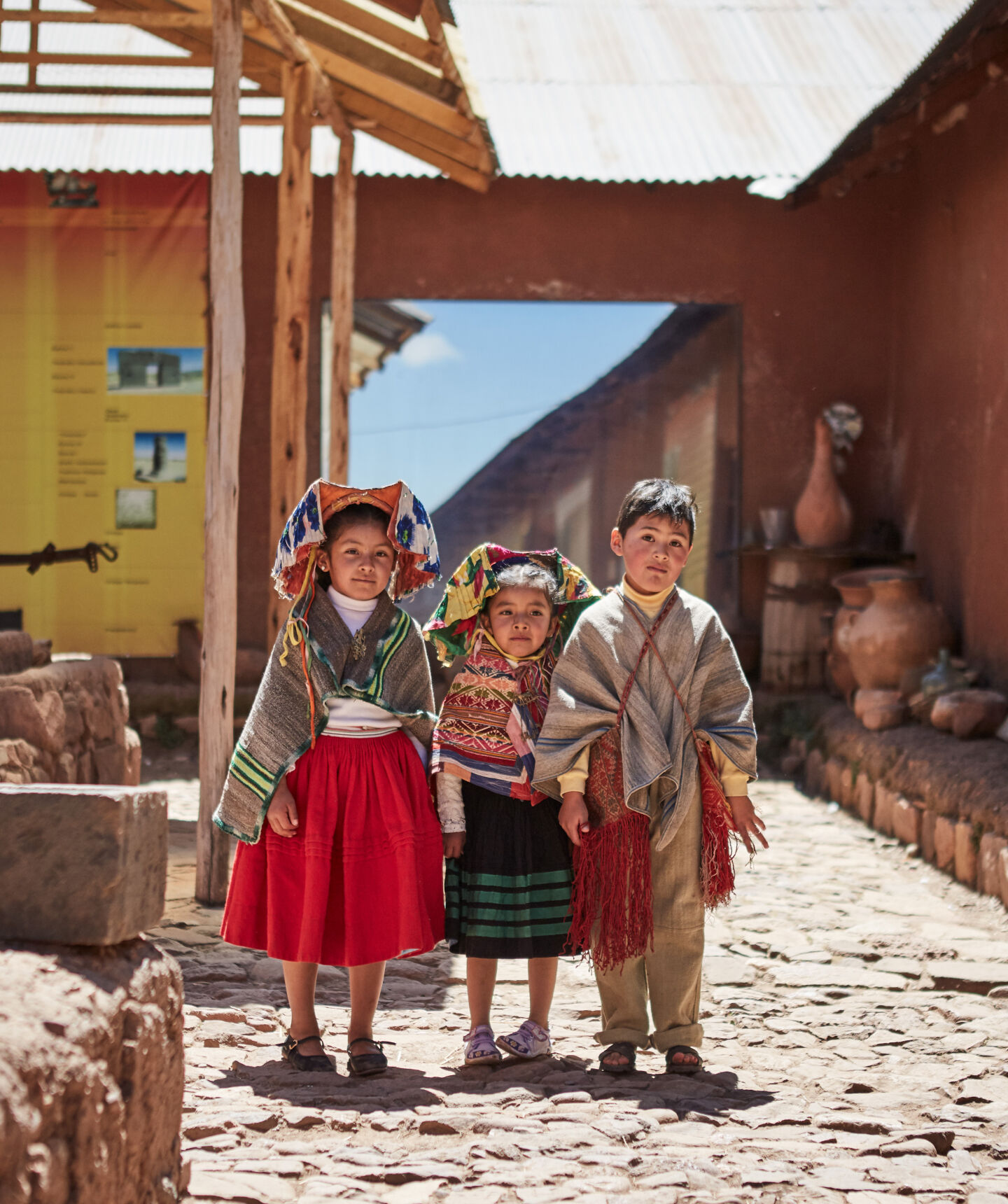
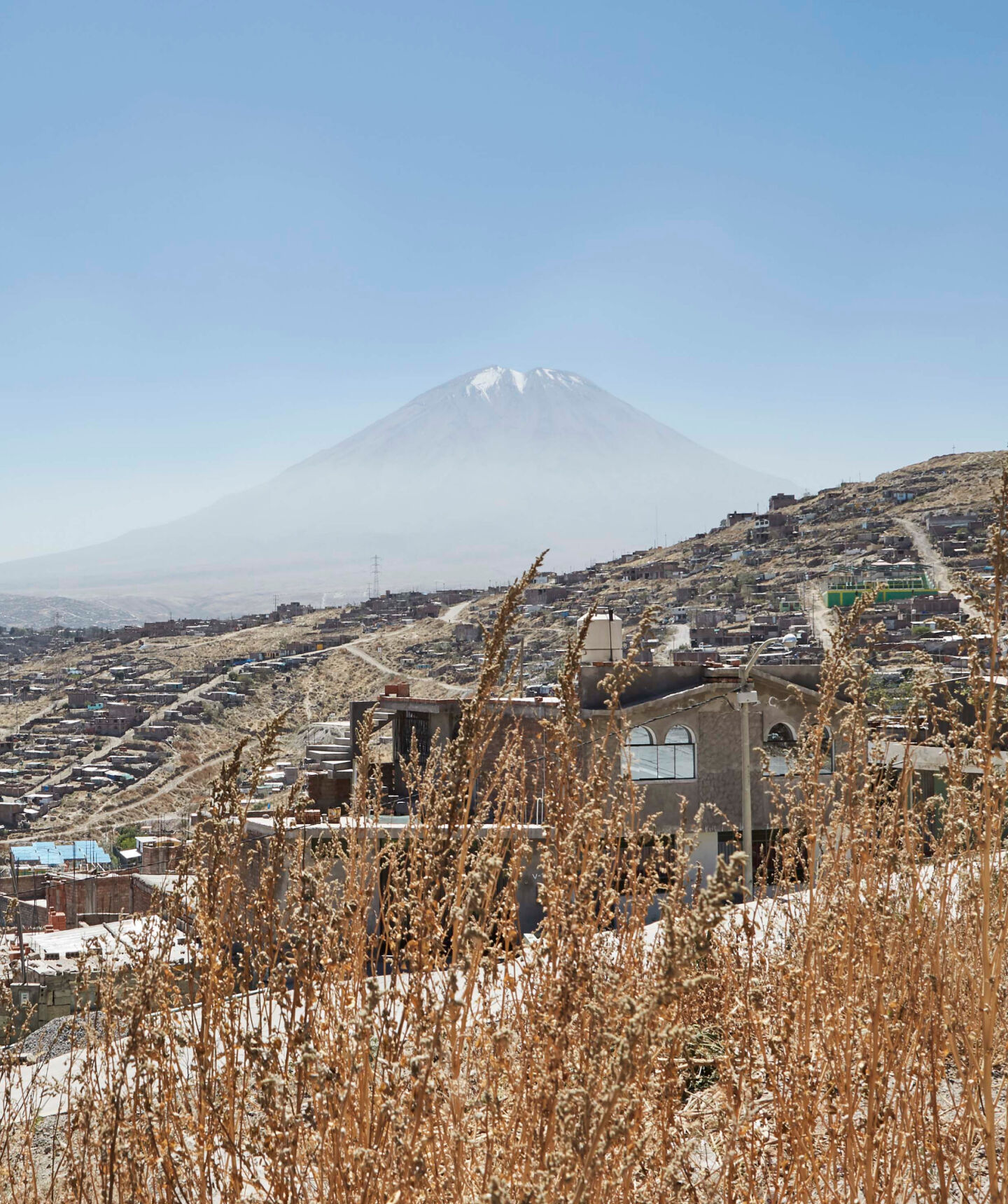
Our Love, Peru program supports a community in Arequipa, Peru.
Art Atlas also works with artisans in the highlands who are skilled in Peruvian textile traditions of knitting and weaving by hand. The artisans are trained to use their skills to earn fair trade wages without having to leave their villages for the city.
“When you invest in a woman, you’re investing in more than just one person. You’re investing in a family. You’re investing in a community,” Jessica says.



















